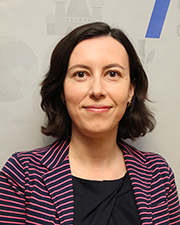About

Initial work on the project was provided by Olha Korinets, a Fulbright Foreign Language Teaching Assistant at KU during AY 2017-18 who piloted early drafts in the first-year language sequence. Tetiana Kidruk, who assumed the Fulbright FLTA position in 2019, provided invaluable proofreading help and authored module 24.2 on the past tense of verbs. Reagan Kanter, an advanced undergraduate student studying Ukrainian, served as consultant for the project on issues of pedagogical clarity and user experience and authored module 12.1 on possessive pronouns.
The contents of this website were developed under grant P229A180008 from the U.S. Department of Education. However, those contents do not necessarily represent the policy of the U.S. Department of Education, and you should not assume endorsement by the Federal Government.
Using Dobra forma
The video below provides an introduction to Dobra forma, including its pedagogical approach and hints for using the site.
Citing Dobra forma
Suggested citation for website:
Wallo, Oleksandra (2020- ). Dobra forma. Lawrence, KS: Open Language Resource Center. Retrieved from https://opentext.ku.edu/dobraforma.
Suggested citation for an individual module:
Wallo, Oleksandra (2020- ). “Nouns 4.5: Locative” in Dobra forma. Lawrence, KS: Open Language Resource Center. Retrieved from https://opentext.ku.edu/dobraforma/chapter/4-5.

